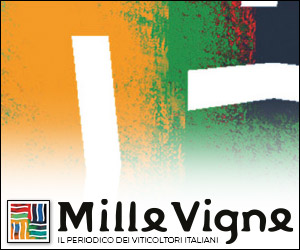The mountain is part of the DNA from which, over four hundred years ago, the history of Albino Armani – Winemakers since 1607 was born.
This is demonstrated by the fact that when in more recent years, we are talking about the middle of the last century, the company expanded into other territories, it always did so in mountainous and high hill areas, in the Valdadige Veronese first and then in the Friulian Grave.
A personal characteristic of Albino Armani is that of acting as a catalyst of experiences and interests to bring together different realities under a common goal of growth and development of a territory. This is demonstrated by his appointment as President of the Consorzio Vini DOC delle Venezie, which covers three regions, from the province of Trento to that of Trieste, from the Alps to the sea, and to which 150 producing wineries belong.
From these assumptions, the project of a conference was born to discuss and deepen the situation and prospects of viticulture on the Trentino side of Monte Baldo, which was held in Brentonico last October 11.
For the technical aspects, Attilio Scienza – professor, author and promoter of the viticultural world, Andrea Faustini – oenologist, coordinator and scientific manager of the Cavit agronomic team, Duilio Porro – Technology Transfer Center of the F.E.M. spoke.
The opportunities for the development of viticulture on Monte Baldo derive first of all from global warming which is moving the cultivation of vines upwards to find the climatic conditions previously present in the plains or low hills.
This general aspect must however be declined in the specificities of the territory from a geological or morphological point of view which determines the dolina effect typical of the Trentino valleys, for which a thermal inversion occurs with lower temperatures on the valley floor compared to the higher altitudes.
The comparison with the viticulture of the Cavedine Valley and the Cembra Valley has shown numerous analogies in terms of altitude, climate, cultivated vines and grape ripening.
The importance of zoning was highlighted by the geological analysis of the soils of Monte Baldo in which sedimentary rocks are found, with the presence of limestone, dolomite, red scaglia and basalt and volcanic soil only in the Crosano area.
This analysis has shown how Monte Baldo is especially suited to the production of grapes intended for the production of sparkling wines.
No less important than the technical aspects are the socioeconomic ones. Albino Armani, Alessandro De Bertolini – of the Fondazione Museo Storico del Trentino, Gianluca Telloli – head of Research and Development of Proposta Vini, and Michael Hock, oenologist of the Cantina St. Jodern Kellerei, spoke on these topics from the Valais wine region (Switzerland).
It was highlighted how the natural environment has always become a cultural landscape thanks to the action of man, especially the farmer, and how therefore agricultural activity should not be viewed with fear with respect to the conservation of the territory, but rather as protecting it from abandonment.
Living testimony of this virtuous circle is the experience of the Valais where the healthy, balanced and sustainable integration between viticulture and landscape is based on the maintenance of historical agricultural practices and small fractionations that make the work in the vineyard more complex but allow for better valorization of the final product. Hence the correct remuneration of the work of the winemakers and the maintenance of a healthy local economy.
The conference concluded with a round table in which all the wineries active in the territory of Monte Baldo Trentino participated: Albino Armani, Elisabetta Foradori, Giacomo Antonini of Sondelaite, Luca Cavallaro as Director of the Technical Viticultural Office of Ferrari Trento and finally Paolo Endrici of Cantina Endrizzi.
The discussion led to convergence on the common goal of developing the viticultural and multivarietal potential of Baldo to enhance it with new methods by actively involving the inhabitants, companies, administrations and bodies of the Brentonico plateau area.
The effects of climate change create the conditions for which the mountain can be good for viticulture, but viticulture can also be good for the mountain.



